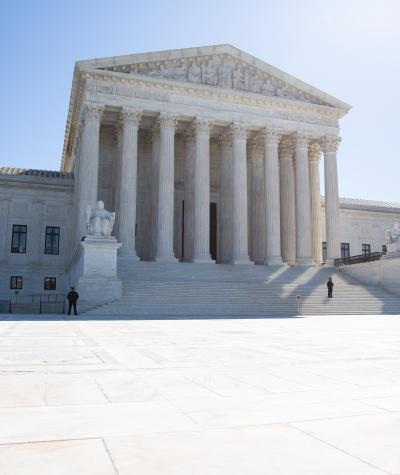Earlier this month, the U.S. Supreme Court upheld two Arizona policies that a lower court had found discriminated against voters of color. This decision in Brnovich v. Democratic National Committee is the latest effort by the Court’s majority to weaken the Voting Rights Act.
But while the decision makes it more difficult to bring and win challenges under a particular section of a federal law—Section 2 of the Voting Rights Act—voters can still challenge anti-voter policies in the courts, namely under the U.S. Constitution.
For example, CLC’s lawsuits challenging anti-voter laws in Georgia and Kansas remain unaffected by the Supreme Court’s ruling. In these lawsuits, we represent civic organizations like VoteAmerica and the Voter Participation Center, who help make it easier for people to navigate the voting process. During the pandemic, these organizations placed a heavy emphasis on helping voters navigate vote-by-mail applications. But the recently enacted state laws in Kansas and Georgia threaten to impose crippling fines on these groups, which we argue violates these organizations’ First Amendment rights to do this critical work.
CLC raised similar issues in an ongoing lawsuit against Tennessee on behalf of several community organizations: A. Phillip Randolph Institute (APRI), The Equity Alliance (TEA), Free Hearts, Memphis Central Labor Council (MCLC), and the Tennessee State Conference of the NAACP.
CLC’s lawsuits also bring First and Fourteenth Amendment claims under the U.S. Constitution because these laws deprive Americans of their fundamental right to vote. CLC also continues to bring claims under the Fourteenth Amendment to ensure that states do not unconstitutionally deprive their citizens of the right to vote without due process or deny them equal protection of the law through enforcement of discriminatory voting laws.
State constitutions and laws also remain a tool to challenge anti-voter laws and practices in state courts.
Still, the Brnovich decision sends a clear message: the Court’s majority is not on the side of the voter. For this reason, the fight for the freedom to vote must continue outside the courtroom. Our elected officials in Washington must follow through on their voting rights promises and pass the For the People Act and the John Lewis Voting Rights Advancement Act so Americans can safely and freely participate in the democratic process.

